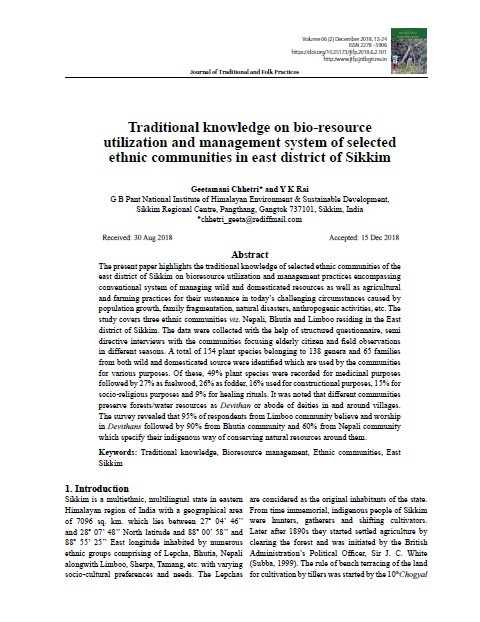Traditional knowledge on bio-resource utilization and management system of selected ethnic communities in east district of Sikkim
Keywords:
Traditional knowledge, Bioresource management, Ethnic communities, East SikkimAbstract
The present paper highlights the traditional knowledge of selected ethnic communities of the east district of Sikkim on bioresource utilization and management practices encompassing conventional system of managing wild and domesticated resources as well as agricultural and farming practices for their sustenance in today’s challenging circumstances caused by population growth, family fragmentation, natural disasters, anthropogenic activities, etc. The study covers three ethnic communities viz. Nepali, Bhutia and Limboo residing in the East district of Sikkim. The data were collected with the help of structured questionnaire, semi directive interviews with the communities focusing elderly citizen and field observations in different seasons. A total of 154 plant species belonging to 138 genera and 65 families from both wild and domesticated source were identified which are used by the communities for various purposes. Of these, 49% plant species were recorded for medicinal purposes followed by 27% as fuelwood, 26% as fodder, 16% used for constructional purposes, 15% for socio-religious purposes and 9% for healing rituals. It was noted that different communities preserve forests/water resources as Devithan or abode of deities in and around villages. The survey revealed that 95% of respondents from Limboo community believe and worship in Devithans followed by 90% from Bhutia community and 60% from Nepali community which specify their indigenous way of conserving natural resources around them.


